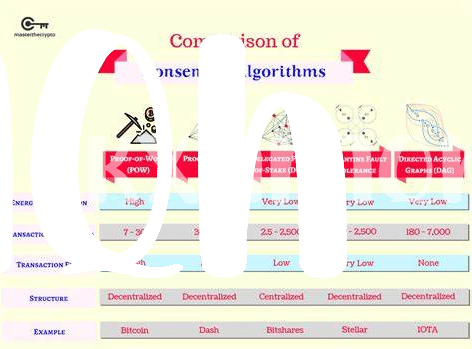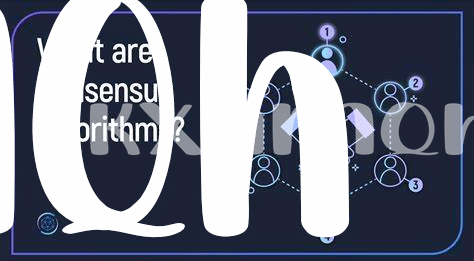Unveiling the Mystery: What Is Quantum Computing? 🔍

Imagine a world where computers are like superheroes, capable of solving problems so complex, it would take our current computers billions of years to crack. This is the realm of quantum computing, a fascinating frontier in technology. Unlike traditional computers, which use bits (zeros and ones) to process information, quantum computers use quantum bits, or qubits. These qubits have a magical property allowing them to be in multiple states at once – not just zero or one but both simultaneously, thanks to superposition. Additionally, they can be entangled, meaning the state of one (no matter how far apart) can depend on the state of another, leveraging a phenomenon known as quantum entanglement. These extraordinary capabilities could revolutionize fields by performing calculations at speeds unfathomable to our current technology. In essence, quantum computing opens up a new dimension of computational power, promising to solve certain types of problems more efficiently than ever before. Here’s a simple breakdown:
| Traditional Computing | Quantum Computing |
|---|---|
| Uses bits (0s and 1s) | Uses qubits (0s, 1s, both) |
| Sequential processing | Parallel processing |
| Limited by physical scaling | Leverages quantum mechanics |
| Primarily binary operations | Complex operations using superposition and entanglement |
This quantum leap in computing power carries implications far beyond faster processing, heralding unprecedented breakthroughs across science, medicine, and perhaps even the foundation of internet security, such as the blockchain technology protecting Bitcoin.
The Backbone of Bitcoin: Understanding Blockchain 🌐
Imagine a giant, digital ledger that everyone can see, but no one owns. This is the heart of Bitcoin, a system where all transactions are recorded in a secure, transparent way. It’s like having a book where you write down every single thing you buy or sell, but instead of one person keeping the ledger, it’s out in the open where everyone can check it. This ledger is called blockchain, and it’s the magic ingredient that makes Bitcoin tick. What’s really cool about blockchain is that it’s extremely difficult for anyone to mess with the information. Once something is recorded, changing it would require untold amounts of computing power, making Bitcoin’s records trustworthy and pretty much tamper-proof. But, as technology marches on, there’s a growing conversation about new kinds of computers on the horizon that could challenge this security. For those curious about diving deeper into Bitcoin’s place in today’s digital landscape, including its challenges and adaptations, a treasure trove of insights can be found here.
Quantum Computers: the Superheroes or Villains? 💥

Imagine a world where computers can solve problems millions of times faster than the machines we use today. This isn’t a scene from a sci-fi movie; it’s the promise of quantum computing. With their ability to process vast amounts of data almost instantaneously, these powerful devices are like superheroes of the computing world. They hold the potential to revolutionize fields like medicine, weather forecasting, and, yes, even the security of digital currencies like Bitcoin. The sheer computing power of quantum machines could crack codes that keep our digital treasures safe, leaving many to wonder if these marvels of technology could turn into villains for the blockchain world.
The concern isn’t unfounded. Quantum computers operate on a different level altogether, using qubits that can be both 0 and 1 at the same time, unlike classic bits that are either 0 or 1. This ability allows them to perform complex calculations at breakneck speeds. Such power could theoretically break through the cryptographic defenses that protect Bitcoin transactions. But it’s not all doom and gloom. The crypto community is well aware of the potential threat and is actively working on quantum-resistant technologies. The race is on to see if quantum computers will become the kryptonite to Bitcoin’s blockchain or if new cryptographic methods can keep these digital assets safe.
Cracking the Code: Quantum Threat to Bitcoin 🔓

Imagine a lock that has kept your most prized possessions safe for years, suddenly at risk because someone crafted a master key. This is the concern echoing in the corridors where Bitcoin and blockchain reign supreme, as quantum computing promises abilities bordering on the extraordinary. The crux of the worry lies in quantum computing’s potential to “crack” the cryptographic safeguards that Bitcoin relies on. Traditional computers work tirelessly yet take an unimaginable amount of time to break these codes, but quantum computers operate on principles that could make this task seem as easy as pie.
The conversation around bitcoin and international sanctions security concerns has taken a new turn with the advent of quantum computing. The cryptographic algorithms that currently protect Bitcoin transactions are robust against attacks from today’s computers. However, quantum computers, with their ability to process complex calculations at breakneck speed, pose a futuristic sword of Damocles. The threat is not immediate, but it is a race against time. Bitcoin, the digital gold, might find its security codes and user anonymity vulnerable in the face of quantum scrutiny. This looming challenge ignites discussions and efforts to quantum-proof the Bitcoin network, to ensure that the trust and security underlying it remain unshaken.
The Race Against Time: Quantum Vs. Cryptography ⏳
Imagine you’re in a thrilling race where one team has the fastest car you’ve ever seen, and the other team is inventively crafting new shortcuts. That’s kind of what’s happening between quantum computers and cryptography – the science behind keeping information secret. Quantum computers are like supercharged racing cars; they can solve problems and crack codes much faster than today’s computers. On the other side, we have cryptography, constantly evolving to create tougher, more complex puzzles that even these speedy quantum computers can’t solve easily. It’s a high-stakes game of cat and mouse, where both sides are rushing against time to outsmart each other. The future of online security, including the safety of digital currencies like Bitcoin, hangs in the balance. Will quantum computers zoom past and break the codes, or will cryptography stay one step ahead, securing our digital treasures? It’s an ongoing race, with both sides pushing the boundaries of what’s possible.
| Competitor | Strengths | Weaknesses |
|---|---|---|
| Quantum Computers | Fast processing and code-breaking abilities | Limited availability and high cost |
| Cryptography | Constantly evolving to create complex puzzles | Needs frequent updates to stay ahead of quantum abilities |
Future-proofing Bitcoin: Possible Solutions and Hope 🛡️

As we peer into a future where quantum computing might challenge the encryption fortifying Bitcoin, it’s essential to remember that innovation isn’t just about challenges but also solutions and hope. The cryptoworld is buzzing with initiatives to quantum-proof the very fabric of Bitcoin’s blockchain, ensuring that this digital treasure remains secure and accessible. Experts are exploring advanced cryptographic techniques, such as quantum-resistant algorithms, to act as a robust shield against the quantum onslaught. Moreover, the community’s strong ethos of collaboration means that these solutions are being developed inclusively, providing a beacon of hope for the future. Developers and cryptographers are in a race not just against time but against the potential of quantum computing to disrupt the current cryptographic norms. This burgeoning field of quantum-safe cryptography is pivotal, safeguarding not only Bitcoin but the entire landscape of digital assets against future threats. For a deeper dive into the intricate dance between these powerful technologies and their implications, consider exploring insights on bitcoin and quantum computing security concerns, which offers a thorough analysis of what lies ahead on this fascinating journey.
